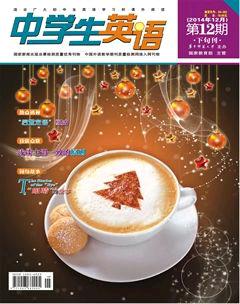初中英语中动名词的用法
李广福
冠词常用在名词前,帮助说明名词所指的人或物,它是一种虚词。冠词包括定冠词和不定冠词两类:定冠词,即the,用于指定的人或物;不定冠词用于泛指事物的类别,只有a和an两个。不少学生总感到冠词难用,尤其拿不准什么时候要“加冠”,什么时候要“免冠”。现将冠词的用法简述如下:
1. 不定冠词a(an)的基本用法
不定冠词a(an)只能用于单数可数名词前,而不能用于复数可数名词或不可数名词前。不定冠词a(an)常见用法如下:
1) 泛指某个人或某物,但又不具体说明何人或何物。
例如:
My parents work in a middle school. (我的父母在一所中学工作。)
An old woman is under the tree. (一位老太太在树下。)
2) 指人或事物的某一个体或种类。
例如:
I am a student. (我是个学生。)
Is this a pencil or a pen? (这是铅笔还是钢笔?)
3) 指某一类人或事物中的任何一个。
例如:
A student must study hard. (学生必须努力学习。)
Even a child can answer this question. (即使是个小孩也能回答这个问题。)
4) 表示数量,与“one”类似,有“一”的意思。
例如:
We have six classes a day. (我们一天上六节课。)
There is an apple on the chair. (椅子上有一个苹果。)
5) 用于某些固定短语中。
例如:
have a look (看一看)
a lot (许多)
have a good time (过得愉快)
a little (一点)
2. 定冠词the的用法
特指双熟悉,上文已提及;
世上独无二,序数最高级;
方位专有名,习语及乐器。
注意:定冠词常置于下面几种事物之前。
1) “特指”某个或某些人或事物前。
例如:
The girl in the hat is Toms sister. (戴帽子的女孩是汤姆的妹妹。)
The books on the desk are Han Meis. (课桌上的书是韩梅的。)
2) “双熟悉”指谈话双方都熟悉的人或事物前。
例如:
Where is the teacher? (老师在哪里?)
Please put the bike under the tree. (请把自行车放在树下。)
3) 上文已经提到的人或事物前。
例如:
I can see a cat. The cat is Lilys. (我能看见一只猫。这只猫是莉莉的。)
4) 世界上独一无二的事物前。
例如:
the sun (太阳)
the moon (月亮)
the earth (地球)
The moon goes round the earth. (月亮围绕地球转。)
5) 序数词和形容词最高级前。
例如:
Sunday is the first day of a week. (星期日是一星期的第一天。)
Kate is the tallest of the three girls. (凯特在三个女孩中个子最高。)
6) 在方位名词前和由普通名词构成的专有名词前。
例如:
Shanghai is in the east of China. (上海在中国的东部。)
the Great Wall (长城)
the Peoples Park (人民公园)
7) 一些习惯用语中和乐器前。
例如:
in the day (在白天)
play the piano (弹钢琴)
3. 不用冠词的几种情况
下列情况应免冠,代词限定名词前;
专有名词不可数,学科球类三餐饭;
复数名词表泛指,两节星期月份前;
颜色语种和国名,称呼习语及头衔。
1) 名词前已有作定语用的this,that,my,your,some,these等限定词,如:this pencil box,his computer,some kites等。
2) 专有名词和不可数名词前一般不用冠词,如:China,Class One,Grade Three,money,milk,water,rice,meat,bread,juice等。
3) 表示学科的名词前不用冠词,如:Chinese,English,maths,physics等。
例如:
I think maths is easy. (我认为数学很容易。)
She prefers English to physics. (她喜欢英语,不喜欢物理。)
4) 在三餐饭和球类运动名词前不用冠词,如:have breakfast/ lunch/ supper (吃早饭/午饭/晚饭),play football/ basketball/ volleyball/ table tennis (玩足球/篮球/排球/乒乓球)等。
5) 复数名词表示泛指时不用冠词。
例如:
My parents are teachers. (我的父母是教师。)
She likes eating bananas. (她喜欢吃香蕉。)
6) 季节、节日、星期、月份前不用冠词。
例如:
Summer is hot and days are long. (夏天热,白天长。)
September 10th is Teachers Day. (9月10日是教师节。)
Its Wednesday today. (今天是星期三。)
7) 表示颜色、语种和国家的名词前不用冠词。
例如:
My bike is black. (我的自行车是黑色的。)
He can speak Japanese. (他会说日语。)
Ann comes from Australia. (安来自澳大利亚。)
8) 在称呼语以及人名或表示头衔的名词前不用冠词。
例如:
Whats wrong, Granny? (老奶奶,您怎么了?)
Dont read in bed. (不要躺在床上看书。)
We made him monitor of our class. (我们选他当班长。)endprint

